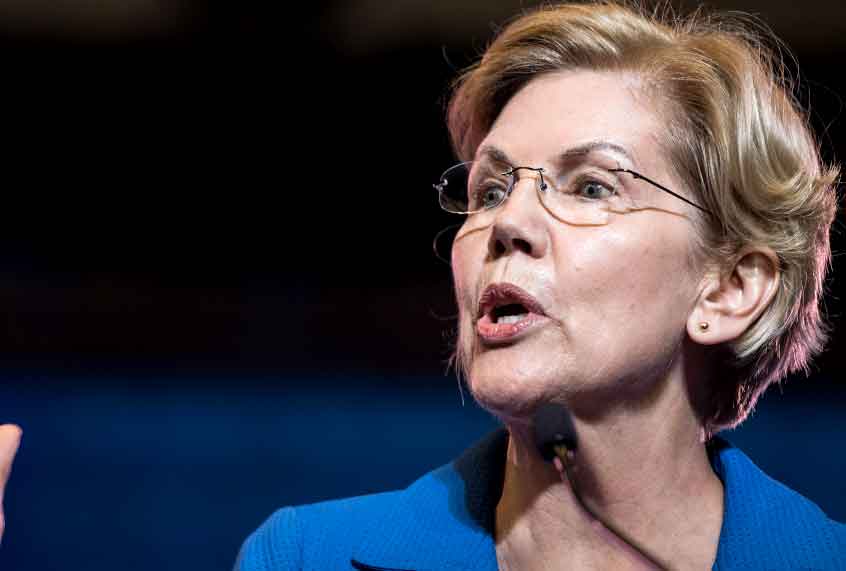A pair of recent surveys result in good news for Sen. Elizabeth Warren, D-Mass., as she attempts to reach the front of the large field of candidates vying for the Democratic presidential nomination in 2020.
First, there was a straw poll from the progressive group MoveOn.org, which found Warren to be the first choice for 38 percent of members across the country. In addition to her strong showing nationally, Warren was also the top choice of Democrats in key early primary and caucus states like California, Iowa, New Hampshire and Nevada.
Not only was Warren the first choice nationally among MoveOn.org respondents, but the runner up — Sen. Bernie Sanders, I-Vt. — did not even obtain half as much support. Sanders received only 17 percent of the vote, with former Vice President Joe Biden earning 15 percent, South Bend Mayor Pete Buttigieg picking up 12 percent and Sen. Kamala Harris, D-Calif., clocking 7 percent.
The poll’s results are as troubling for Sanders as they are promising for Warren. Because Sanders’ chief appeal is as a champion of the Democratic Party’s left-wing, his inability to pick up a plurality of MoveOn.org’s progressive base could be an ominous sign for his performance in the 2020 primaries.
Next, a recent Morning Consult survey found that Warren, who has usually been among the pack of Democrats jockeying for third place as Biden and Sanders compete for the first and second spots, now solidly ranks third. The poll found Biden in the lead with 38 percent, followed by Sanders with 19 percent, Warren with 13 percent, Buttigieg with 7 percent and Harris with 6 percent.
Other surveys this month have also had good news for Warren’s campaign. A recent Economist/YouGov poll found Warren ahead of Sanders by a margin of 16 percent to 12 percent nationwide. A Monmouth poll of Democrats likely to participate in the Nevada caucuses found Warren in second place with 19 percent, behind Biden’s 36 percent and Sanders’ 13 percent. A UC Berkeley-Los Angeles Times poll of California found Biden ahead with 22 percent, closely followed by Warren with 18 percent and Sanders with 17 percent.
One potential weakness of Warren’s candidacy could be that she does not currently perform as well as some of her potential Democratic challengers in hypothetical match-ups against Trump. A recent Quinnipiac poll found that Warren was only ahead of President Donald Trump by seven points (49 percent to 42 percent). Biden, on the other hand, was ahead of Trump by 13 points (53 percent to 40 percent), Sanders was ahead of Trump by nine points (51 percent to 42 percent) and Harris was ahead of Trump by eight points (49 percent to 41 percent). It is unclear, however, how much of these results are due to Warren’s lack of name recognition when compared to other, better-known political quantities like Biden, who served as President Barack Obama’s vice president from 2009 to 2017.
If nominated, Warren would become the second woman to serve as a major party’s presidential nominee, following in the footsteps of Hillary Clinton in 2016. If elected, she would be America’s first female president, as well as arguably the most outspokenly progressive president since Lyndon Johnson’s administration more than 50 years earlier.

